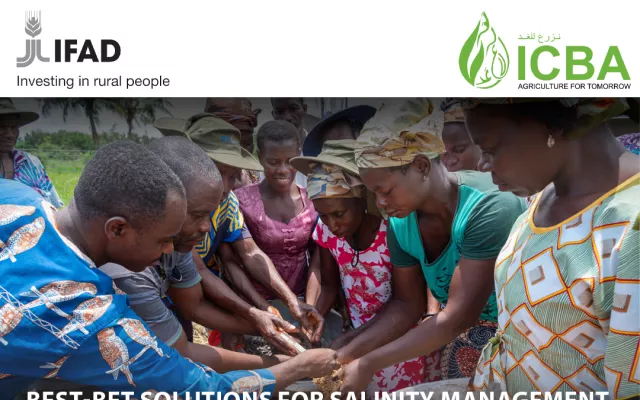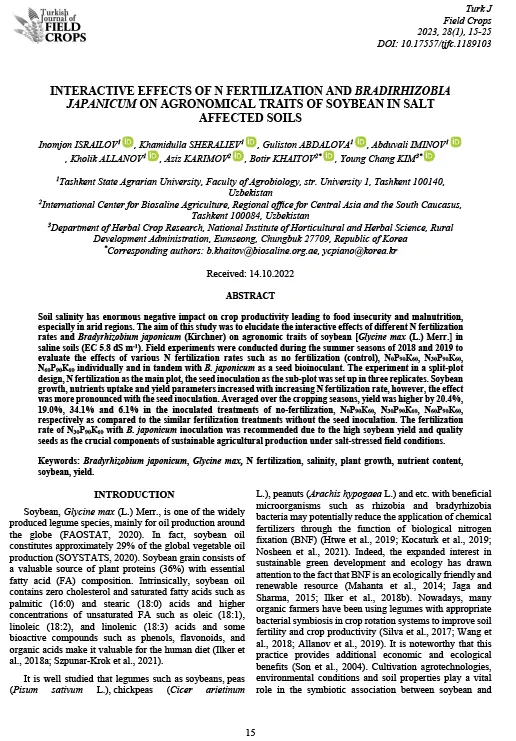Interactive Effects of N Fertilization and Bradirhizobia Japanicum on Agronomical Traits of Soybean in Salt Affected Soils
Soil salinity has enormous negative impact on crop productivity leading to food insecurity and malnutrition, especially in arid regions. A field experiment was conducted during the summer seasons of 2018 and 2019 to evaluate the effects of various N fertilization rates in combination with Bradyrhizobium japonicum inoculation on the agronomic perfor-mance of soybean (Glycine max L) in saline soils (EC 5.8 dS m-1). The following fertilization treatments were applied: no fertilization (control), N0Р90К60, N30Р90К60, N60Р90К60 individually and in tandem with B. japonicum as a seed bio-inoculant. The experiment in a split-plot design, N fertilization as the main plot, the seed inoculation as the sub-plot was set up in three replicates. Soybean growth, nutrients uptake and yield parameters increased with increasing N fertili-zation rate, however, the effect was more pronounced with the seed inoculation. Averaged over the cropping seasons, the soybean yield was higher by 20.4%, 19.0%, 34.1% and 6.1% in the inoculated treatments of no-fertlization, N0Р90К60, N30Р90К60, N60Р90К60, respectively as compared to the similar fertilization treatments without the seed inoculation. As a result, fertilization rate of N30Р90К60 in with association B. japonicum inoculation was recommended as this study outcome due to the high soybean yield and quality seeds as the crucial components of sustainable agricultural production under salt-stressed field conditions.
Year
2023
Publication Source
Turkish Journal of Field Crops
Publication type
Scientific Paper
Volume/Chapter/Issue
28
Page Number
15-25










